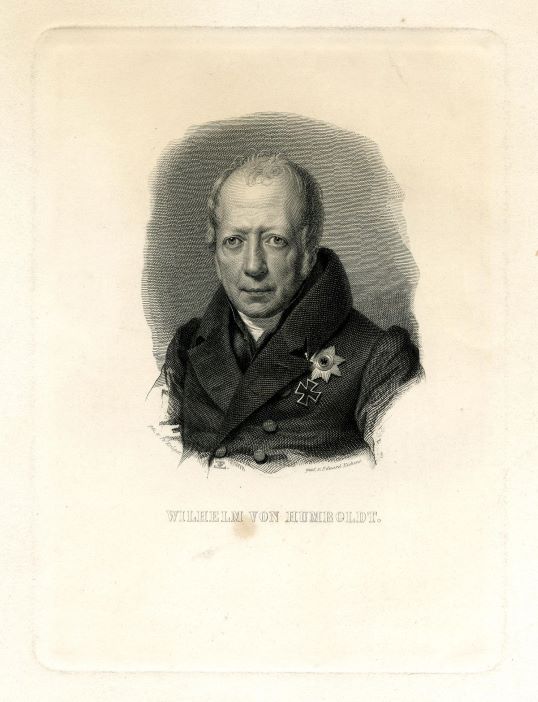Liberty Matters
Liberalism’s Breaking Point?

In his reading of Humboldt’s The Limits of State Action, Michael Bentley is undoubtedly right in at least one respect. There is a vital necessity to turn back to the classics of liberal and libertarian principles after the pandemic and read again, with fresh eyes, Humboldt’s short treatise, either in the fascinating, terse German original or in the enormously influential English translation of the mid 19th century. Everyone may come up with a different interpretation of his thoughts. Since they are posthumous and ‘unauthorized’, they can hardly be considered as expressions of the final personality of Humboldt as he intended to go down in history. More than other writings they are open to multiple explanations. Nonetheless, or maybe because of that, their impact on us is still remarkable. Could we make the case here that in the untimely there resides a deeper, authentic contemporaneity, like Nietzsche claimed? Or that what is unfinished is particularly attractive? I will leave these questions unanswered, and instead point out that Humboldt’s thoughts touch a very sensitive spot in our history and in our self-understanding. As Hardy Bouillon has suggested, “The threat of voluntary abandonment of freedom is a logical implication of freedom […] Humboldt’s state had a predetermined breaking point.” I would go one step further. Don’t all liberal visions of society easily reach a breaking point? Or isn’t the process of reaching a breaking point the essence of liberalism, based as it is on respect for all forms of liberty? A few years before Humboldt, Voltaire faced a similar dilemma: “I may not agree with what you have to say, but I will defend to the death your right to say it.” What if you have to defend the right to speak in favor of suppressing freedom of opinion, and religious conscience, and self-expression? Or grant representation in parliament to those who are ready and eager to destroy parliamentary institutions? Young Humboldt saw the dawn of the intricate questions that we are still struggling with.
Copyright and Fair Use Statement
“Liberty Matters” is the copyright of Liberty Fund, Inc. This material is put on line to further the educational goals of Liberty Fund, Inc. These essays and responses may be quoted and otherwise used under “fair use” provisions for educational and academic purposes. To reprint these essays in course booklets requires the prior permission of Liberty Fund, Inc. Please contact oll@libertyfund.org if you have any questions.